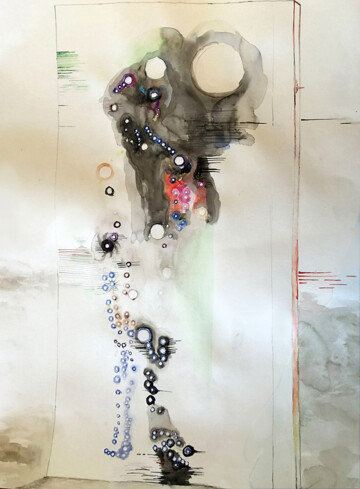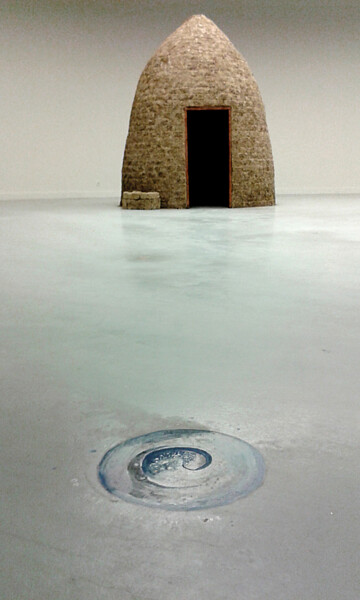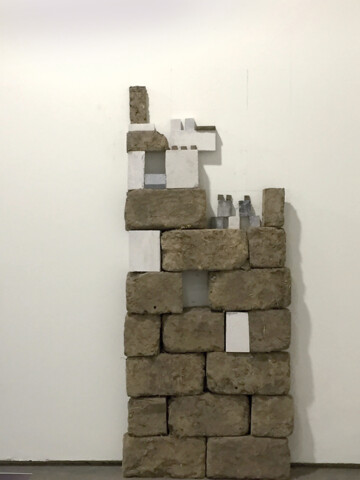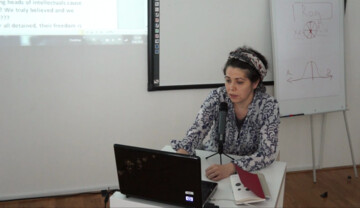How to share the void?
On Basic Income Concepts
In the early nineties, I studied art in the newly founded Intermedia Department in Hungary. One of our professors, Tamás St.Auby spoke about his utopian theories on the border of traditional spirituality, art, and social change. One of the notions, which returned in his lectures, again and again, was the notion of "Basic Income". We heard from St.Auby about monks in Tibet who never worked and the community always provided the subsistence level, we heard about the new and eternal role of artists after the Fluxus movement: artist should never be forced to work, and the community should provide a minimal income to survive. Beuys said "everybody is an artist" – should all the people have a basic income?)
All this sounded like an artists’ subjective mythology on the level of social and metaphysical utopia. Suddenly in 2016, I bump again into the notion of basic income. This time, it is a real economic proposal to provide for all the people a basic minimal income and broadly discussed in media.
One of the ideas in the background is to ease the tension on the labour market and the social tension in general in times when there are fewer and fewer jobs. Too much social tension arises because of the competitive fight in the society for work and employment.
Meanwhile, most of the agriculture is automated, so most of the rural work is gone and countries have become deserts because of climate change, other countries has very high wages and it became impossible to produce (e.g. Switzerland).
The tendency is to disconnect work and income, to disconnect redistribution of goods from labour and by this from Marxist theory, wich is based on the notion of working class.
The lecture introduces the notion of economic concepts of basic income and the first experiments in poor countries like India and the discussion in welfare states like Switzerland.
Beyond the economic aspect, I am reminded of the lectures of Tamás St. Auby, which showed us, that the basic income was traditionally the privilege of monks and spiritual communities, groups. A life without work was connected to a high degree of spirituality or to art.
The Buddhists monks spent a lot of time with fasting and meditation. Andrej Rubljov was painting, the hippies and Fluxus people of the seventies smoked grass and were fasting.
The question arises, how a society will psychologically and mentally regulate themselves in times when machines take over most of the work and humans will receive a basic income?
How will we share the void?
The lack of work, creative work and a tool of production? How will we share the spirit? What will be the role of art? What was and will be the role of collective fasting as practiced in traditional societies, and religions ( e.g. Ramadan in Islam) and suggested in modern advertisements’ stereotype, and predicted to be lost in Kafka’s Hungerkünstler?
End of the nineties - going hand in hand with the postmodernity of the third industrial revolution of the internet – we spoke of The Creative Industry, – art and creativity as a tool to increase marketing and development – as described in exhibitions and texts "Be creative" by Marion von Osten.
Today, five years after the sudden revival of new revolutionary movements as it happened with Occupy Wall Street and Arab Spring, followed in many places by the deep humanitarian crisis and horror, we have to think about new roles of art. It is no longer the neo-liberal creative industry anymore, but art in times of crisis, ruptures, sectarian fights, and war. It is the question how to share the void.
In my artistic work, I design small new solution for an economy, ecology, and life practice. In my personal artistic practice, ecological design is connected with spirituality. While describing my notion of "spiritual design" I am aware, that I use a prohibited word in contemporary art. Still we have to share and redesign the void.





